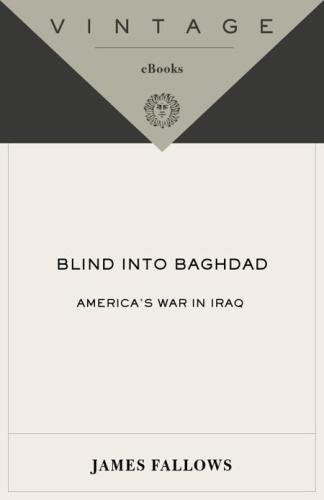
Blind Into Baghdad
America's War in Iraq
- اطلاعات
- نقد و بررسی
- دیدگاه کاربران
نقد و بررسی

July 10, 2006
Fallows, national correspondent for the Atlantic Monthly
, compiles in this slim volume a series of five articles he wrote for that magazine between 2002 and 2005, which collectively won a National Magazine Award. Along with an original introduction and afterword, the essays systematically chronicle the mendacity, insularity and incompetence of the Bush administration while developing and implementing its Iraq policy. Relying heavily on inside sources and declassified documents, Fallows (National Defense)
shows that, before the war, the government had ample intelligence to forestall many of the disastrous consequences of the occupation, but Rumsfeld, Wolfowitz and others ordered their subordinates to ignore the reports. "Bush's Lost Year" addresses a topic that has received little attention: the effects of the buildup in Iraq on the campaign in Afghanistan and the broader war on terror. "Why Iraq Has No Army" studies one decision that has hampered the war effort ever since. For avid news readers, little will be new, though "Will Iran Be Next?"—an account of a high-level discussion convened by the Atlantic Monthly
—may pique more interest.

September 15, 2006
Fallows' series of articles for the " Atlantic Monthly " between 2002 and 2005 that won the magazine a National Magazine Award are collected in this book, offering a backward look on the analysis that criticized the administration's plan for a preemptive war in Iraq and its woefully inadequate planning for the aftermath of war. Fallows' article "The Fifty-first State," published in November 2002, conveyed the complexity of dealing with Iraq after the war and the likelihood that the responsibility would be long term and consuming. The collection examines the questionable reports of Iraq's cache of weapons of mass destruction and how the administration could have known of the internal tensions within Iraq that would make managing the occupation extremely difficult. Fallows explores why Iraq has no army two years after the invasion and the threats posed by Iran. The collection provides an interesting perspective on the war, looking back on what was anticipated with uncanny accuracy, which raises even more questions about the administration's inability to foresee the difficulties of occupying Iraq. Footnotes provide additional information, background, and commentary since the articles first appeared. (Reprinted with permission of Booklist, copyright 2006, American Library Association.)




دیدگاه کاربران